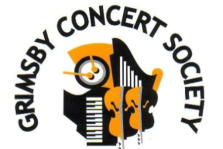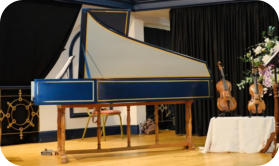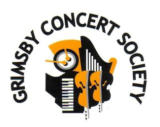



Eden Baroque
8
th
February 2024
In
Music
for
a
While
-
the
Society
enjoyed
a
very
special
concert
by
Eden
Baroque
:
Katharine
May
(Harpsichord)
and
Michael
Sanderson
(Voice,
Viola
&
Violin),
performing
music
and
songs
from
the
Tudor
period
through
to
the
late
Baroque
in
a
quintessentially
English
concert.
John
Dowland’s
Awake
Sweet
Love
thou
art
return’d
set
the
standard
for
the
evening,
Michael’s
wonderful
baritone
effortlessly
filled
the
Assembly
Room
of
Grimsby
Town
Hall,
fully
benefiting
from
its
fine
acoustics.
Michael
showed
great
insight
into
his
songs
and
sang
with
clarity
and
natural
pleasure.
Perhaps
defying
expectations
for
a
quill-plucked
instrument,
Katharine’s
harpsichord
sounded
sweetly
through
the
hall.
Theirs
was
a
beautifully
understated
performance,
presenting
seldom
heard
English
music
in
a
delightful
and
informative
way
–
prefacing
pieces
with
humorous
historical
anecdotes.
After
another
Dowland
song
came
two
songs
from
Nicholas
Lanier,
the
Master
of
the
King’s
Music,
these
included
Fire
Fire
–
an
expression
of
unquenchable
passion,
sung with gusto.
The
first
instrumental
solo
of
the
concert
was
three
movements
from
George
Frideric
Handel,
Suite
no
5
in
E
major
.
Katharine’s
delicate
touch
was
reflected
by
the
refined
sound
of
her
instrument.
The
Prelude
was
pleasantly
soothing,
the
Allemande
stately
and
graceful
and
the
Courante
lively
and
intense.
Then
came
two
songs
from
Henry
Purcell,
the
first
being
Music
for
a
While
–
expressively
sung
by
Michael.
Then,
I
attempt
from
Love’s
sickness
to
fly
-
a
lively
song
of
helplessness
–
expressively
and
rhythmically
sung.
After
four
short
songs
by
Christopher
Pepusch,
the
first
half
finished
with
a
violin
solo,
accompanied
by
harpsichord,
as
Michael
played
Division
on
a
Ground
(John
come
kiss
me
now)
by
Thomas
Balshar.
The
gut
strings
of
the
violin
had
an
engaging
throaty
tone;
the
piece
well
phrased
with
effective
contrasts,
the
music
was
paradoxically
fresh whilst seemingly nostalgic.
After
the
interval,
a
delightful
Sonata
no
11
in
G
minor
by
Henry
Eccles,
played
by
Michael
on
Viola;
full
of
contrasts
with
a
final
Presto
reminiscent
of
Vivaldi.
Three
songs
recalled
the
Georgian
London
Pleasure
Gardens:
James
Hook,
The
Lass
of
Richmond
Hill
–
a
lively
and
cheeky
song;
the
wonderfully
sung
Where
‘ere
you
walk,
Handel;
finally
Thomas
Arne’s
witty
arrangement
for
When
Daisies
Pied
–
Katharine
adding
to
the
humour
using a cuckoo call whistle.
Katharine
provided
another
wonderful
harpsichord
solo,
performing
Air
with
five
variations
,
later
dubbed
The
Harmonious
Blacksmit
h,
from
Handel’s
Suite
no
5
in
E
major
.
Rhythmically
played
and
well
ornamented,
and
using
the
available
harpsichord
dispositions
to
the
full
she
presented
a
variety
of
contrasting
moods
and
dynamics.
Michael
sang
two
contrasting
pieces
from
Joseph
Haydn,
which
included
the
very
patriotic
Sailors
Song
.
With
these
songs,
the
harpsichord
part
was
particularly
interesting
being
in
many
respects
an
equal
and
sophisticated,
at
times
almost
exotic,
voice.
To
the
delight
of
the
audience,
Michael
returned
to
his
violin
to
close
the
concert
with
a
foot
tapping
and
nostalgic
Dance
Medley
,
from
a
John
Playford
collection
(c.1651);
the
final
piece
being
the
familiar
Lilliburlero. IM





Eden Baroque
8
th
February 2024.
In
Music
for
a
While
-
the
Society
enjoyed
a
very
special
concert
by
Eden
Baroque
:
Katharine
May
(Harpsichord)
and
Michael
Sanderson
(Voice,
Viola
&
Violin),
performing
music
and
songs
from
the
Tudor
period
through
to
the
late
Baroque
in
a
quintessentially
English
concert.
John
Dowland’s
Awake
Sweet
Love
thou
art
return’d
set
the
standard
for
the
evening,
Michael’s
wonderful
baritone
effortlessly
filled
the
Assembly
Room
of
Grimsby
Town
Hall,
fully
benefiting
from
its
fine
acoustics.
Michael
showed
great
insight
into
his
songs
and
sang
with
clarity
and
natural
pleasure.
Perhaps
defying
expectations
for
a
quill-plucked
instrument,
Katharine’s
harpsichord
sounded
sweetly
through
the
hall.
Theirs
was
a
beautifully
understated
performance,
presenting
seldom
heard
English
music
in
a
delightful
and
informative
way
–
prefacing
pieces
with
humorous
historical
anecdotes.
After
another
Dowland
song
came
two
songs
from
Nicholas
Lanier,
the
Master
of
the
King’s
Music,
these
included
Fire Fire
– an expression of unquenchable passion, sung with gusto.
The
first
instrumental
solo
of
the
concert
was
three
movements
from
George
Frideric
Handel,
Suite
no
5
in
E
major
.
Katharine’s
delicate
touch
was
reflected
by
the
refined
sound
of
her
instrument.
The
Prelude
was
pleasantly
soothing,
the
Allemande
stately
and
graceful
and
the
Courante
lively
and
intense.
Then
came
two
songs
from
Henry
Purcell,
the
first
being
Music
for
a
While
–
expressively
sung
by
Michael.
Then,
I
attempt
from
Love’s
sickness
to
fly
-
a
lively
song
of
helplessness
–
expressively
and
rhythmically
sung.
After
four
short
songs
by
Christopher
Pepusch,
the
first
half
finished
with
a
violin
solo,
accompanied
by
harpsichord,
as
Michael
played
Division
on
a
Ground(John
come
kiss
me
now)
by
Thomas
Balshar.
The
gut
strings
of
the
violin
had
an
engaging
throaty
tone;
the
piece
well
phrased
with
effective contrasts, the music was paradoxically fresh whilst seemingly nostalgic.
After
the
interval,
a
delightful
Sonata
no
11
in
G
minor
by
Henry
Eccles,
played
by
Michael
on
Viola;
full
of
contrasts
with
a
final
Presto
reminiscent
of
Vivaldi.
Three
songs
recalled
the
Georgian
London
Pleasure
Gardens:
James
Hook,
The
Lass
of
Richmond
Hill
–
a
lively
and
cheeky
song;
the
wonderfully
sung
Where
‘ere
you
walk,
Handel;
finally
Thomas
Arne’s
witty
arrangement
for
When
Daisies
Pied
–
Katharine adding to the humour using a cuckoo call whistle.
Katharine
provided
another
wonderful
harpsichord
solo,
performing
Air
with
five
variations
,
later
dubbed
The
Harmonious
Blacksmit
h,
from
Handel’s
Suite
no
5
in
E
major
.
Rhythmically
played
and
well
ornamented,
and
using
the
available
harpsichord
dispositions
to
the
full
she
presented
a
variety
of
contrasting
moods
and
dynamics.
Michael
sang
two
contrasting
pieces
from
Joseph
Haydn,
which
included
the
very
patriotic
Sailors
Song
.
With
these
songs,
the
harpsichord
part
was
particularly
interesting
being
in
many
respects
an
equal
and
sophisticated,
at
times
almost
exotic,
voice.
To
the
delight
of
the
audience,
Michael
returned
to
his
violin
to
close
the
concert
with
a
foot
tapping
and
nostalgic
Dance
Medley
,
from
a
John
Playford collection (c.1651); the final piece being the familiar Lilliburlero. IM

Rehearsals



















